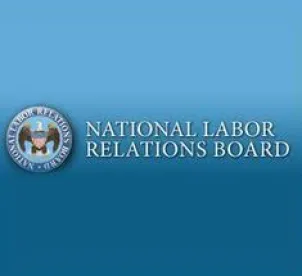-
In Hy-Brand Industrial Contractors, 365 NLRB No. 156 (Dec. 14, 2017), the National Labor Relations Board overruled Browning-Ferris Industries, 362 NLRB No. 186 (2015), an Obama-era decision that held two entities are joint employers under the National Labor Relations Act where the second employer exercises indirect control over another entity’s employees or where the second employer has reserved a right of control, even if unexercised. In Hy-Brand, the Board reversed course, returning to prior precedent finding joint employer status only where the second entity actually has exercised control over the other entity’s employees and has done so “directly and immediately.” Applying the new standard, the Board found Hy-Brand Industrial Contractors and Brandy Construction Co. were joint employers and, as a result, were jointly and severally liable for employee terminations the Board found were unlawful. For more on the decision, see our article, Labor Board Returns to Pre-2015 Joint Employer Standard.
-
On December 15, the Board issued its decision in PCC Structurals, 365 NLRB No. 160, in which it overruled Specialty Healthcare, 357 NLRB 934 (2011). Under Specialty Healthcare, if a union petitioned for an election among a group of employees, contending the smallest appropriate unit must include additional employees, the Board would find only the larger unit appropriate if the excluded employees shared an “overwhelming” community of interest with the petitioned-for group. In PCC Structurals, the Board replaced the “overwhelming community-of-interest” standard with the pre-Specialty Healthcare “community-of-interest” test for determining whether a larger bargaining unit is appropriate. The Board remanded the case to a NLRB Regional Director to reconsider the Director’s prior rejection of the employer’s bid to expand a proposed unit. Subsequent to the Board’s decision, the NLRB General Counsel issued a memorandum instructing Directors on how to apply PCC Structurals in “currently active” cases. For more on the decision and the memo, see our blog posts, Board Overrules Specialty Healthcare and New NLRB GC Opens Door to Possible Widespread Bargaining Unit Changes.
-
On December 15, the Board decided in Raytheon Network Centric Systems, 365 NLRB No. 161, to reverse its recent decision in E.I. du Pont de Nemours, 364 NLRB No. 113 (2016). In du Pont, the Board held that an employer must bargain with a union before taking unilateral action requiring the exercise of employer discretion or when the action follows a past practice that commenced pursuant to a management rights clause in an expired collective bargaining agreement. According to the Board in Raytheon, employer actions do not constitute a change requiring bargaining if the action is “similar in kind and degree” with a past practice, regardless of whether the action involves discretion or arose under a collective bargaining agreement. Applying the reinstated standard, the Board in Raytheon held the employer’s changes to employee healthcare were a continuation of similar unilateral changes made during the same time every year for more than a decade.
-
In its first reversal of an Obama-era precedent, the NLRB on December 11 held that Board administrative law judges can approve unfair labor practice settlement agreements, even if the Board’s General Counsel and the charging party object, as long as the settlement is “reasonable” under the Board’s analysis in Independent Stave, 287 NLRB 740 (1987). UPMC, 365 NLRB No. 153 (Dec. 11, 2017). The Board’s decision reversed U.S. Postal Service, 364 NLRB No. 116 (2016), in which the Obama-era Board held Board ALJ’s were no longer able to accept a charged party’s settlement terms if the Board GC or charging party objected, unless the settlement represented a “full remedy for all the violations alleged in the complaint.” In UPMC, the employer offered to settle a single-employer allegation by guaranteeing the performance by its affiliate, Presbyterian Shadyside, of any remedial requirements in an underlying unfair labor practice judgment against the two entities. While an ALJ accepted the guarantee, the union and GC objected. Upholding the ALJ’s decision, the Board held that UPMC’s settlement offer was reasonable, since its guarantee had the same effect in binding both entities as would a single-employer determination by the Board.
-
On December 13, the Board published a Request for Information seeking public comments on the “quickie election” representation rules. The RFI seeks input on whether the Board should maintain, amend, or rescind the 2014 rules, which, among other things, reduced the time between the date of the filing of a representation petition and the NLRB-conducted election. This reduced the amount of time employers had to communicate with employees about union issues. Interested parties may submit comments until February 12, 2018. It remains to be seen what action, if any, the Board will take after reviewing comments. For more on the RFI, see our blog post, Labor Board Asks: Retain, Modify, or Rescind ‘Quickie Election’ Rules?
Top Five Labor Law Developments for December 2017
Thursday, January 18, 2018
Current Public Notices
Published: 28 August, 2025
Published: 25 August, 2025
Published: 25 August, 2025
Published: 25 August, 2025
Published: 25 August, 2025
Published: 22 August, 2025
Published: 20 August, 2025
Published: 20 August, 2025
Published: 18 August, 2025
Published: 18 August, 2025
Published: 14 August, 2025
Published: 12 August, 2025
Published: 11 August, 2025
Published: 8 August, 2025
Published: 18 July, 2025







 />i
/>i
